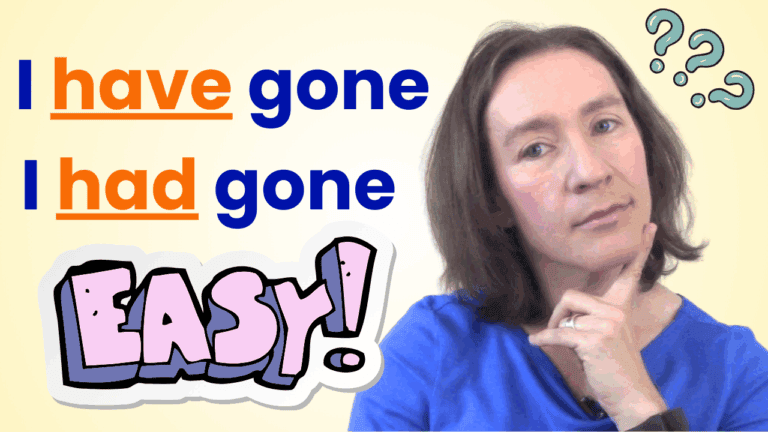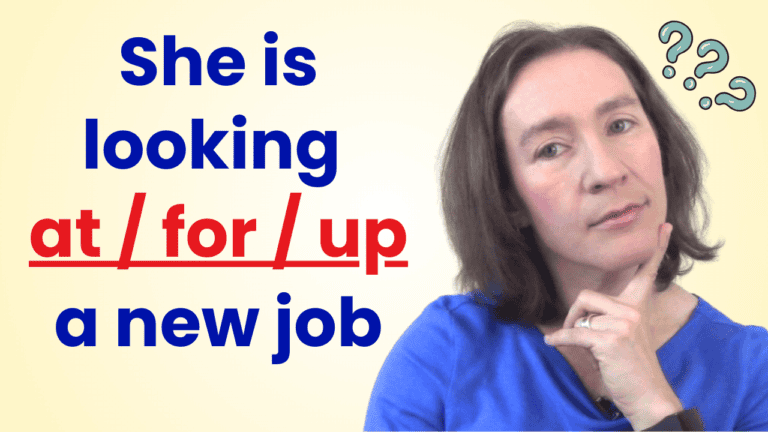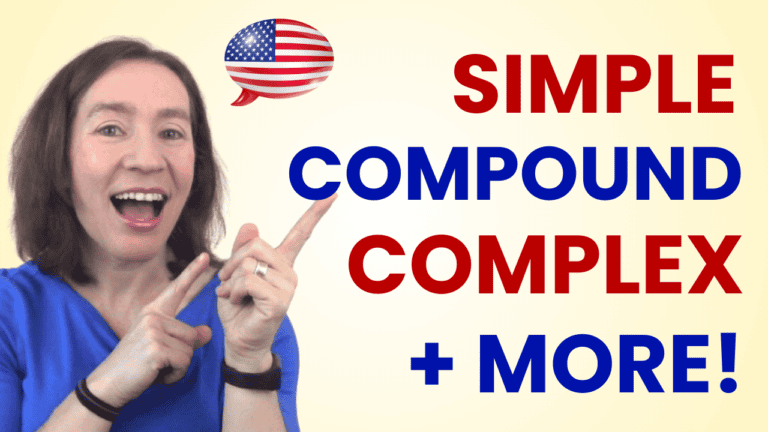What are linking verbs?
Linking verbs do not describe an action – instead, they connect the subject of the sentence to a word describing it or providing additional information about it. For example:
- I feel tired. (“tired” describes me)
- He seems annoyed (“annoyed” describes him)
- She is a teacher. (“a teacher” describes her)
- They are students. (“students” describes them)
What follows the linking verb is called a “subject complement” because it describes the subject of the sentence. There are two types:
- predicate adjectives – when what follows the linking verb is an adjective (ex. tired, annoyed) or an adjective phrase (ex. annoyed about the delay)
- predicate nouns – when what follows the linking verb is a noun (ex. a teacher, students) or a noun phrase (ex. a teacher at the local college)
Linking verbs list
Most linking verbs are related to BEING, BECOMING, and how things appear to our five senses:
- be – including all its forms (am / are / is in the present tense; was / were in the past tense, etc.)
- become/get/grow/turn (when talking about a change/transformation)
- seem
- appear
- look
- smell
- sound
- taste
- feel
These are the most common ones; there are a few others that are only occasionally linking verbs, as you’ll see in the section on verbs that can be both!
Linking verbs: examples
Let’s see some example sentences using linking verbs to connect the subject of the sentence to its description (the subject complement):
BE:
- I am hungry.
- They are friendly.
- He is a native English speaker.
- The movie was funny.
- My parents are retired now, but they were both doctors.
(two linking verbs here! One is followed by a predicate adjective – retired – and the other by a predicate noun – doctors) - The festival will be awesome!
- We‘ve been busy lately.
“Be” is a linking verb when it is the main verb, followed by an adjective (hungry, awesome, busy) or a noun (a native English speaker, doctors).
“Be” functions as a helping verb when followed by a continuous form (I am studying) or a past participle as in the passive voice (The documents were stolen).
BECOME / GET / GROW / TURN / GO:
These are linking verbs when talking about change or transformation:
- She became a famous author later in life.
- The weather gets cold around November.
- They grew impatient after waiting for three hours.
- His face turned red with embarrassment.
- The crowd went crazy when the player scored a goal.
Learn lots more expressions with “get”
SEEM / APPEAR / LOOK:
- The children seem content.
- He appears unhappy.
- That roller coaster looks scary.
SMELL / SOUND / TASTE / FEEL:
- The cake smells good.
- Your plan sounds great!
- This meat tastes salty.
- My blanket feels soft.
Learn vocabulary for perceptions of the senses

Verbs that can be both
Some of the verbs listed above can be linking verbs or action verbs depending on how they are used:
GO
- Linking verb when describing a change/transformation:
- He went bald at 40 years old.
- Action verb when someone is going to another place:
- He went to the store.
GET
- Linking verb when describing a change/transformation:
- I got angry when he insulted me.
- Action verb when receiving, buying, or other actions:
- I got gifts for my birthday. (received)
- I got this T-shirt in New York. (bought)
- I got out of the car. (left)
LOOK
- Linking verb when describing something’s appearance:
- The Christmas decorations looked spectacular.
- Action verb when describing a person actively looking at/for something:
- We looked at the beautiful Christmas lights.
- He’s looking for a job.

SMELL / TASTE / FEEL
- Linking verbs when describing a quality of the subject:
- The milk smells bad.
- Action verbs when describing a person actively using their senses:
- I’m smelling the milk to see if it has gone bad.
REMAIN / STAY / KEEP
- Linking verbs when talking about “continuing to be” a certain way:
- She remained/stayed awake all night.
- They kept calm during the emergency.
- Action verbs when describing not moving, or possessing
- She remained/stayed at the hospital all night.
- They kept their old car for many years.

ACT
- Linking verb when talking about someone’s behavior:
- He acted surprised, even though he already knew about the party.
- Action verb when talking about participating in a play / show / movie:
- He acted in the local theater’s performance of Phantom of the Opera.
FALL
- Linking verb when talking about becoming, especially in the expressions “fall silent” and “fall ill”:
- The crowd fell silent as the president began to speak.
- Action verb when talking about something going down:
- I hurt my elbow when I fell off my bike.
PROVE
- Linking verb when talking about something being a certain way:
- Fixing the car proved difficult.
(this is often used in the structure “proved to be… difficult / wise / important / etc.)
- Fixing the car proved difficult.
- Action verb when talking about showing/demonstrating truth:
- The experiment proved that the scientist’s theory was correct.










